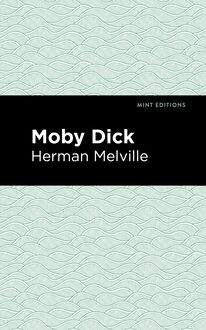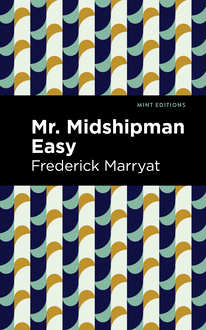-
 Univers
Univers
-
 Ebooks
Ebooks
-
 Livres audio
Livres audio
-
 Presse
Presse
-
 Podcasts
Podcasts
-
 BD
BD
-
 Documents
Documents
-
- Cours
- Révisions
- Ressources pédagogiques
- Sciences de l’éducation
- Manuels scolaires
- Langues
- Travaux de classe
- Annales de BEP
- Etudes supérieures
- Maternelle et primaire
- Fiches de lecture
- Orientation scolaire
- Méthodologie
- Corrigés de devoir
- Annales d’examens et concours
- Annales du bac
- Annales du brevet
- Rapports de stage
La lecture à portée de main
Vous pourrez modifier la taille du texte de cet ouvrage
Découvre YouScribe en t'inscrivant gratuitement
Je m'inscrisDécouvre YouScribe en t'inscrivant gratuitement
Je m'inscrisEn savoir plus
Vous pourrez modifier la taille du texte de cet ouvrage
En savoir plus

Description
Percival Keene (1842) is a novel by Frederick Marryat. Inspired by the author’s experience as a captain in the Royal Navy, Percival Keene is a tale of bravery, identity, and the manifold reasons for men to take to the high seas. Frequently funny, often profound, Marryat’s novel is an underappreciated classic of nineteenth century fiction. “‘Dead! Well, fathers do die sometimes; you must get on how you can without one. I don’t think fathers are of much use, for, you see, mothers take care of you till you’re old enough to go to sea. My father did nothing for me, except to help mother to lick me, when I was obstropolous.’” Percival Keene is a troubled young man: raised by his mother and grandmother, he gains a reputation for troublemaking and disobedience early on. At school, he lashes out against bullying teacher Mr. O’Gallagher by adding poison to his sandwiches, knowing that the man will steal his lunch as usual. On Guy Fawkes Day, however, Percival finally crosses the line by setting off fireworks underneath O’Gallagher’s office, destroying the school and nearly killing the Irishman. Years later, having lost his chance at receiving an education, Percival enlists in the Royal Navy. While serving on the H.M. Calliope, he discovers that his father may not have been the marine Ben Keene, but rather his employer Captain Delmar. With a beautifully designed cover and professionally typeset manuscript, this edition of Frederick Marryat’s Percival Keene is a classic of British literature reimagined for modern readers.
Sujets
Informations
| Publié par | Mint Editions |
| Date de parution | 03 août 2021 |
| Nombre de lectures | 0 |
| EAN13 | 9781513294315 |
| Langue | English |
| Poids de l'ouvrage | 1 Mo |
Informations légales : prix de location à la page 0,0500€. Cette information est donnée uniquement à titre indicatif conformément à la législation en vigueur.
Extrait
Percival Keene
Frederick Marryat
Percival Keene was first published in 1842.
This edition published by Mint Editions 2021.
ISBN 9781513291468 | E-ISBN 9781513294315
Published by Mint Editions ®
minteditionbooks .com
Publishing Director: Jennifer Newens
Design & Production: Rachel Lopez Metzger
Project Manager: Micaela Clark
Typesetting: Westchester Publishing Services
C ONTENTS I II III IV V VI VII VIII IX X XI XII XIII XIV XV XVI XVII XVIII XIX XX XXI XXII XXIII XXIV XXV XXVI XXVII XXVIII XXIX XXX XXXI XXXII XXXIII XXXIV XXXV XXXVI XXXVII XXXVIII XXXIX XL XLI XLII XLIII XLIV XLV XLVI
I
A few miles from the town of Southampton there is an old mansion-house, which has been for centuries known as Madeline Hall, in the possession of the de Versely family. It is a handsome building, surrounded by a finely timbered park of some extent, and, what is more important, by about 12,000 acres of land, which also appertain to it. At the period in which I commence this history, there resided in this mansion an elderly spinster of rank, named the Honourable Miss Delmar, sister of the late Lord de Versely and aunt to the present earl, and an Honourable Captain Delmar, who was the second son of the deceased nobleman. This property belonged to the Honourable Miss Delmar, and was at her entire disposal upon her decease.
The Honourable Captain Delmar, at the time I am speaking of, commanded a frigate employed upon what was designated channel service, which in those days implied that the captain held a seat in the House of Commons and that he voted with the ministry; and further, that his vote might, when required, be forthcoming, the frigate was never sea-going, except during the recess. It must be admitted that H.M. ship Paragon did occasionally get under weigh and remain cruising in sight of land for two or three days, until the steward reported that the milk provided for the captain’s table was turning sour; upon which important information the helm was immediately put up, and the frigate, in a case of such extreme distress, would drop her anchor at the nearest port under her lee. Now as the Paragon was constantly at Spithead, Captain Delmar was very attentive in visiting his aunt, who lived at Madeline Hall; ill-natured people asserted, because she had so fine an estate in her own gift. Certain it is, that he would remain there for weeks, which gave great satisfaction to the old lady, who liked her nephew, liked attention, and was even so peculiar as to like sailors. But it must be observed that there was another person at the mansion who also liked the captain, liked attention, and liked sailors; this was Miss Arabella Mason, a very pretty young woman of eighteen years of age, who constantly looked in the glass merely to ascertain if she had ever seen a face which she preferred to her own, and who never read any novel without discovering that there was a remarkable likeness between the heroine and her pretty self.
Miss Arabella Mason was the eldest daughter of the steward of the old Lord de Versely, brother to the Honourable Miss Delmar, and was much respected by his lordship for his fidelity and his knowledge of business, in the transaction of which he fell, for he was felling trees, and a tree fell upon him. He left a widow and two daughters: it was said that at his death Mrs. Mason was not badly off, as her husband had been very careful of his earnings. Mrs. Mason, however, did not corroborate this statement; on the contrary, she invariably pleaded poverty; and the Honourable Miss Delmar, after Lord de Versely’s death—which happened soon after that of his steward—sent both the daughters to be educated at a country school, where, as everything that is taught is second-rate, young ladies, of course, receive a second-rate education. Mrs. Mason was often invited by the Honourable Miss Delmar to spend a month at Madeline Hall, and used to bring her eldest daughter, who had left school, with her. Latterly, however, the daughter remained as a fixture, and Mrs. Mason received but an occasional invitation. It may be inquired in what capacity Miss Arabella Mason remained at the Hall; she was not a servant, for her position in life was above that of a menial; neither was she received altogether in the saloon, as she was of too humble a grade to mix with gentry and nobility; she was, therefore, betwixt and between, a sort of humble companion in the drawing-room, a cut above the housekeeper in the still-room, a fetcher and carrier of the honourable spinster’s wishes, a sort of link between the aristocratic old dame and her male attendants, towards whom she had a sort of old maidish aversion. However this position might be found useful to her mistress, it must be admitted that it was a most unfortunate position for a young, thoughtless, and very pretty girl, moreover, who was naturally very lively, very smart in repartee, and very fond of being admired.
As the Honourable Captain Delmar was very constant in his visits to his aunt, it was but natural that he should pay some little attention to her humble companion. By degrees the intimacy increased, and at last there were reports in the servants’ hall, that the captain and Miss Bella Mason had been seen together in the evergreen walk; and as the captain’s visits were continually repeated during the space of two years so did the scandal increase, and people became more ill-natured. It was now seen that Miss Bella had been very often found in tears, and the old butler and the older housekeeper shook their heads at each other like responsive mandarins; the only person who was ignorant of the scandal afloat was the old lady spinster herself.
I must now introduce another personage. The Honourable Captain Delmar did not, of course, travel without his valet, and this important personage had been selected out of the marine corps which had been drafted into the frigate. Benjamin Keene, for such was his name, was certainly endowed with several qualities which were indispensable in a valet; he was very clean in his person, very respectful in his deportment, and, after the sovereign of Great Britain, looked upon the Honourable Captain Delmar as the greatest person in the world. Moreover, Benjamin Keene, although only a private marine was, without exception, one of the handsomest men that ever was seen and being equally as well made and well drilled as he was handsome in person, he was the admiration of all the young women. But Nature, who delights in a drawback, had contrived to leave him almost without brains; and further, he was wholly uneducated—for he was too stupid to learn—his faculties were just sufficient to enable him, by constant drilling, to be perfect in the manual exercise, and mechanically to perform his duties as a valet.
Ben always accompanied his master to the hall, where the former was at one and the same time the admiration and laughter of all the servants. It hardly need be observed, that the clever and sprightly Miss Arabella Mason considered Ben as one much beneath her, that is, she said so on his first arrival at Madeline hall; but, strange to say, that two years afterwards, just at the time that reports had been raised that she had been frequently discovered in tears, there was a change in her manner towards him; indeed some people insinuated that she was setting her cap at the handsome marine: this idea, it is true, was ridiculed by the majority; but still the intimacy appeared rapidly to increase. It was afterwards asserted by those who find out everything after it has taken place, that Ben would never have ventured to look up to such an unequal match had he not been prompted to it by his master, who actually proposed that he should marry the girl. That such was the fact is undoubted, although they knew it not; and Ben, who considered the wish of his captain as tantamount to an order, as soon as he could comprehend what his captain required of him, stood up erect and raised his hand with a flourish to his head, in token of his obedience. Shortly afterwards, Captain Delmar again came over to Madeline Hall, accompanied as usual, by Ben, and the second day after their arrival it was made known to all whom it might concern, that Miss Arabella Mason had actually contracted a secret marriage with the handsome Benjamin Keene.
Of course, the last person made acquainted with this interesting intelligence was the Honourable Miss Delmar, and her nephew took upon himself to make the communication. At first the honourable spinster bridled up with indignation, wondered at the girl’s indelicacy, and much more at her demeaning herself by marrying a private marine. Captain Delmar replied, that it was true that Ben was only a private, but that every common soldier was a gentleman by profession. It was true that Bella Mason might have done better—but she was his aunt’s servant, and Keene was his valet, so that the disparity was not so very great. He then intimated that he had long perceived the growing attachment; talked of the danger of young people being left so much together; hinted about opportunity, and descanted upon morals and propriety. The Honourable Miss Delmar was softened down by the dexterous reasoning of her nephew; she was delighted to find so much virtue extant in a sailor; and, after an hour’s conversation, the married couple were sent for, graciously pardoned, and Mrs. Keene, after receiving a very tedious lecture, received a very handsome present. But if her mistress was appeased, Mrs. Keene’s mother was not. As soon as the intelligence was received, old Mrs. Mason set off for Madeline Hall. She first had a closeted interview with her daughter, and then with Captain Delmar, and as soon as the latter was over, she immediately took her departure, without paying her respects to the mistress of the Hall, or exchanging one word with any of the servants; this conduct gave occasion to more innuendoes—some indeed ascribed her conduct to m
-
 Univers
Univers
-
 Ebooks
Ebooks
-
 Livres audio
Livres audio
-
 Presse
Presse
-
 Podcasts
Podcasts
-
 BD
BD
-
 Documents
Documents
-
Jeunesse
-
Littérature
-
Ressources professionnelles
-
Santé et bien-être
-
Savoirs
-
Education
-
Loisirs et hobbies
-
Art, musique et cinéma
-
Actualité et débat de société
-
Jeunesse
-
Littérature
-
Ressources professionnelles
-
Santé et bien-être
-
Savoirs
-
Education
-
Loisirs et hobbies
-
Art, musique et cinéma
-
Actualité et débat de société
-
Actualités
-
Lifestyle
-
Presse jeunesse
-
Presse professionnelle
-
Pratique
-
Presse sportive
-
Presse internationale
-
Culture & Médias
-
Action et Aventures
-
Science-fiction et Fantasy
-
Société
-
Jeunesse
-
Littérature
-
Ressources professionnelles
-
Santé et bien-être
-
Savoirs
-
Education
-
Loisirs et hobbies
-
Art, musique et cinéma
-
Actualité et débat de société
- Cours
- Révisions
- Ressources pédagogiques
- Sciences de l’éducation
- Manuels scolaires
- Langues
- Travaux de classe
- Annales de BEP
- Etudes supérieures
- Maternelle et primaire
- Fiches de lecture
- Orientation scolaire
- Méthodologie
- Corrigés de devoir
- Annales d’examens et concours
- Annales du bac
- Annales du brevet
- Rapports de stage




















